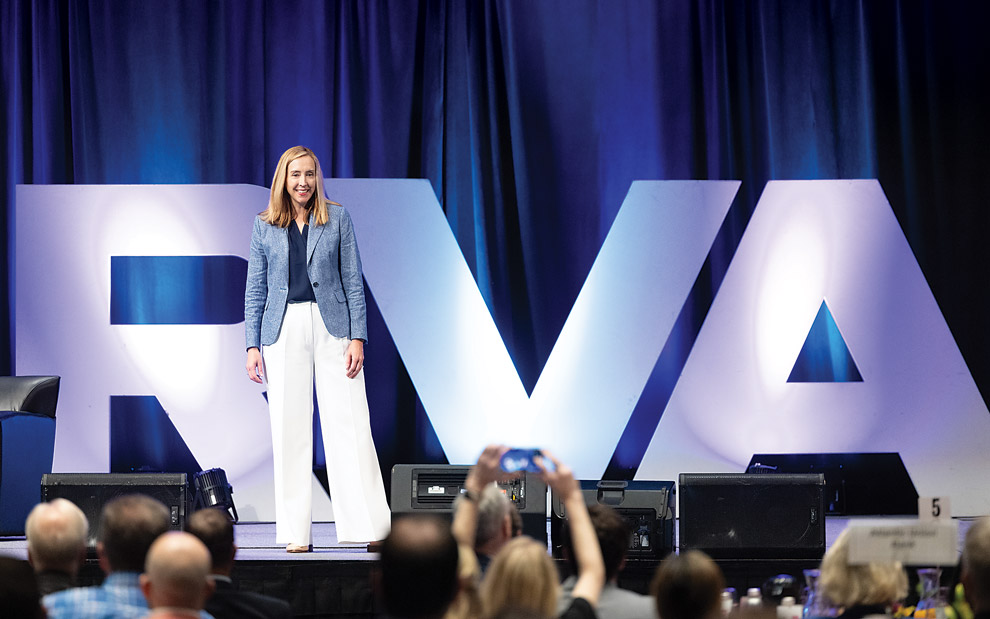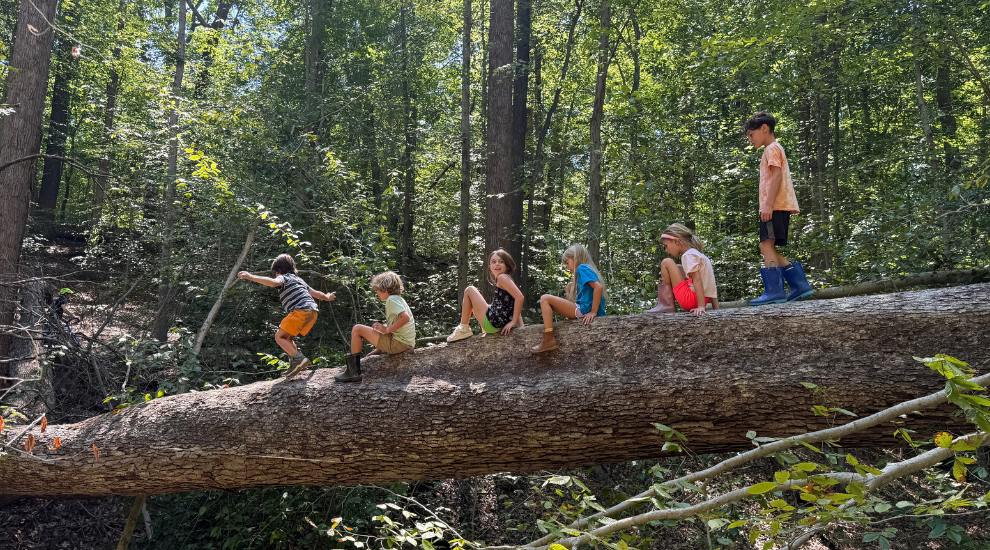The O’Donnell family has plenty of experience exploring Richmond and its surroundings.
Of course, that’s not a surprise, given that Katherine O’Donnell has worked with Richmond Region Tourism (RRT) – the local nonprofit that promotes the area to business and leisure travelers – for nearly all her professional life.
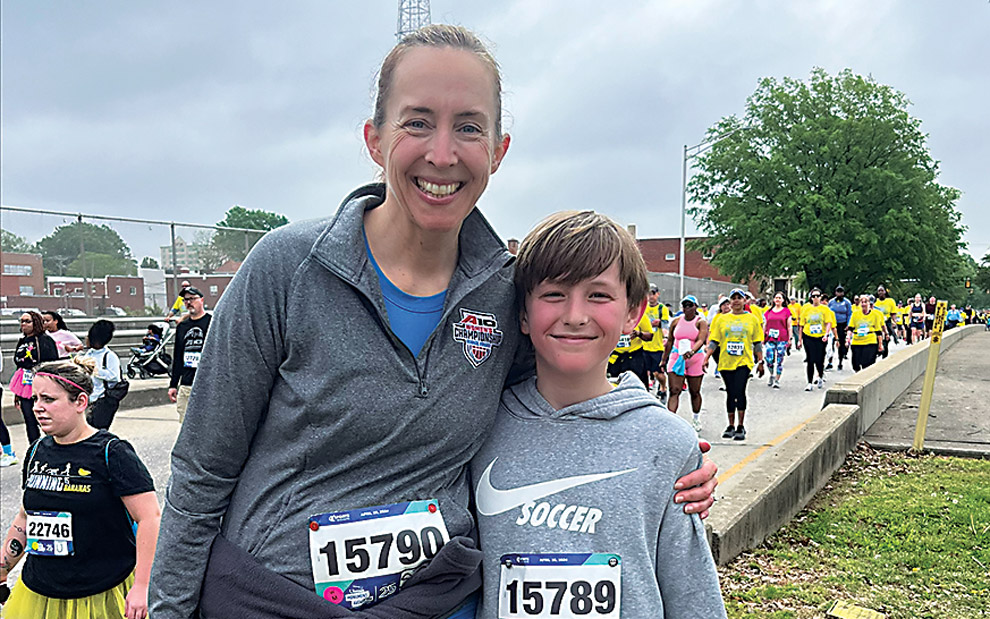
“We go to Kings Dominion every summer; we’re at the Richmond Folk Festival every fall; we go to the Dominion GardenFest of Lights at Lewis Ginter each winter,” O’Donnell says, laughing. “Our children have grown up in all of this.”
A Winston-Salem, N.C., native, O’Donnell came to the area as an undergraduate at the University of Richmond and never left. She met her archaeologist husband, Darby – whose business conducts surveys required for permitting purposes – on a blind date at Legend Brewing Company. The family now includes children Norah, fifteen, and Henry, eleven, and is settled in Richmond’s West End, near the UR campus.
The family attends special events, openings, and performances together and takes full advantage of the region’s offerings. O’Donnell admits that as the children have grown older, family participation at ribbon-cuttings has dwindled. “I seem to spend more time on the soccer field than anywhere else,” she says, laughing.
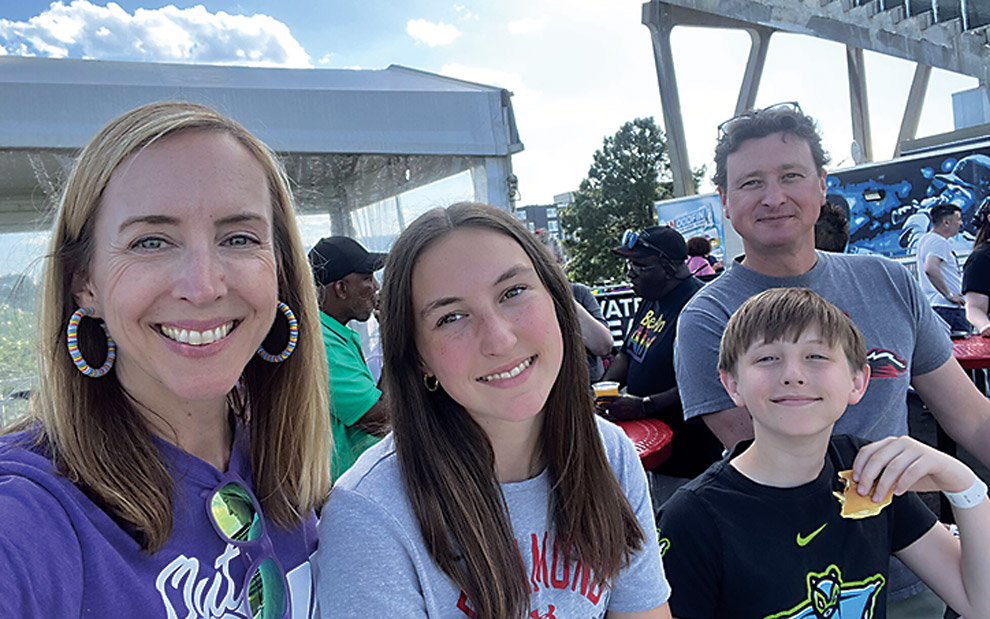
And even though O’Donnell is a travel professional, she doesn’t always get to call the shots on destinations and activities. “Sometimes, we have competing interests,” she says. “Some want to go and be on the go, others want to go and just sit.”
This summer, the family agreed on two trips: the annual family beach vacation in North Carolina and a concert at Red Rocks amphitheater outside Denver. The kids also have more of a say in whether they attend local tourism events.
“I invited my son to the unveiling of the Secretariat statue in Ashland [in March], and he asked if there would be standing while people were talking,” O’Donnell says. “I told him, yes, and he passed. It’s funny, now, to see my daughter go to Carytown with friends, not with me.”
Leading the Way!
O’Donnell is also experiencing change at the office. On July 1, she ascended to the title of president and CEO of RRT, succeeding former president and CEO Jack Berry, who led the region’s tourism efforts for more than thirty years. Berry is widely credited with encouraging collaboration among local government and private entities to promote Richmond as a desirable destination for business, leisure, and sports tourism.
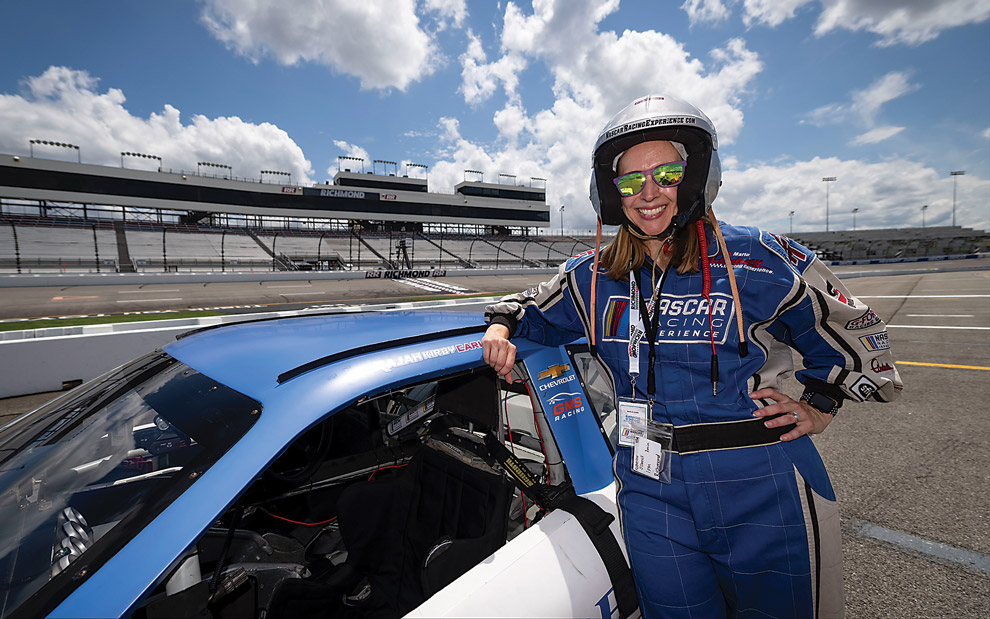
Berry began work with the Richmond Metropolitan Convention and Visitors Bureau in 1991, the predecessor to today’s RRT. During his tenure, he oversaw a $165 million renovation and expansion of the Greater Richmond Convention Center in 2002, making it the largest in the Commonwealth of Virginia. Berry helped make the case for localities to develop and build sports facilities that can host large tournaments, drawing participants from the Mid-Atlantic and beyond. He partnered with the City of Richmond to launch the City Center project, which is designed to replace the unusable downtown Richmond Coliseum with an eight-block region of entertainment, accommodations, dining, and retail. In 2021, he organized support for state legislation to create a Tourism Improvement District, which ultimately increased RRT’s budget and ability to reach out to potential visitors.
All the effort is paying off. Fiscal year 2022-2023 was record-setting for tourism in the region, with hotels generating more than $35 million in lodging taxes, a sixteen percent increase over the 2021-2022 totals. The Convention Center also hosted 218 more events – a twenty-one percent increase – than in the previous year. Sports tourism alone accounted for two-thirds of the region’s bookings.
When O’Donnell joined RRT in 2002 as a publications coordinator, she had no idea where she – and the tourism organization – were heading. As a 1999 graduate of UR, she had been working at the state’s department of historic resources. “I didn’t even know tourism offices were a thing,” she says.
“Over time, I came to love the work beyond the marketing,” O’Donnell says. “The region has been on an upward trajectory for years. We keep coming out on top and getting better and better. The community is more engaged, and pride is palpable.”
In 2012, O’Donnell became RRT’s first vice president of community relations, focusing on community-driven initiatives like OutRVA and BLK RVA. Those two programs highlight Richmond as a destination friendly to LGBTQ+ and Black visitors.
“We wanted to shift outdated perceptions of Richmond,” O’Donnell says. “At the heart of both of those programs, we are shining a spotlight on those businesses that are making people feel welcome here and show that Richmond is a place for all.”
In 2015, RRT introduced the I Am Tourism ambassador program, in which citizens explore the area’s diverse offerings via a half-day seminar and bus tour, enabling them to become cheerleaders for the region, too. “Anyone can come learn about the impact of tourism,” she says. “We thought it would be industry folks, but we’ve had hairdressers, taxi drivers, human resources people, retirees, realtors. We’re just a diverse and rich and interesting ecosystem of offerings.”
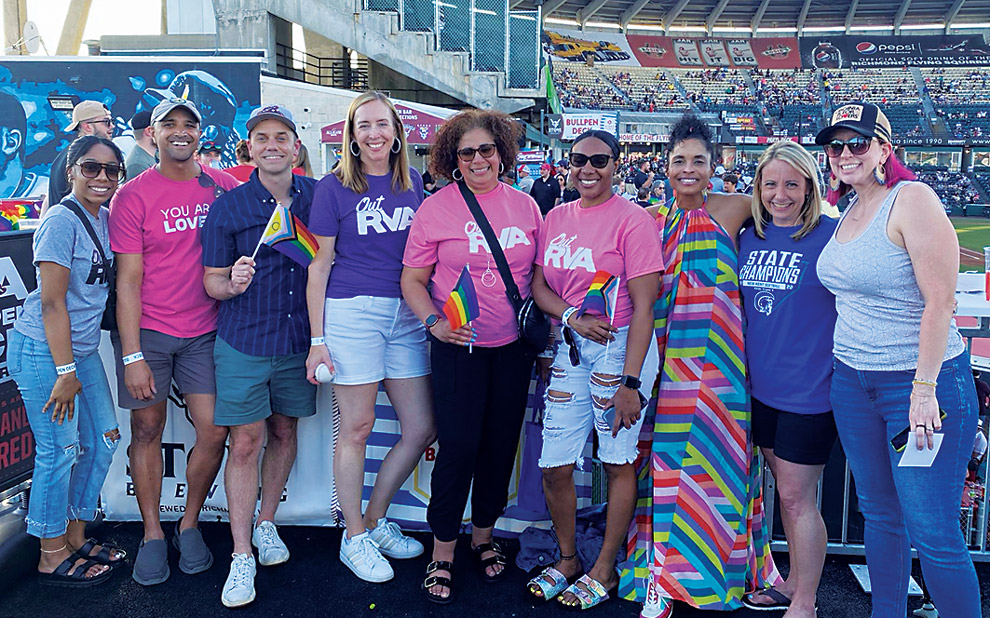
According to O’Donnell, a tourism tipping point happened in 2014, when travel guide Frommer’s published the article, “While you weren’t looking, Richmond got cool!”
“All this stuff was bubbling up; then we got a cascade of media accolades. It all goes hand in hand,” O’Donnell adds.
O’Donnell says that for event organizers, seeing is believing. “What we find, almost to a T, is that whenever somebody comes here, and they haven’t been here before, they’re blown away,” she says. “Usually we close the deal once they’ve seen Richmond.”
Some conventions, like GalaxyCon, are annual events. Others – the National Genealogical Society, for example – attract their largest attendance when they’re meeting in Richmond.
“Richmond is one of those places where people are surprised and delighted when they visit,” she adds. “People who live here are hospitable and caring and kind. Our community cares that you’re here. In larger cities, events are a dime a dozen. Part of our appeal and what clients really love
is a feeling of appreciation from our community. We care they’re here; our media write about it; and [Richmonders] come to the events.”
Leisure travelers find plenty of fun, too, from a thriving arts and culture scene to renowned restaurants. And those visitors are often the hardest to see, O’Donnell notes. “We call [leisure travel] the invisible industry,” she says. “You can see [conventioneers] in lanyards, but the leisure traveler can be anyone on the street. In tourism, there’s a finite number of event spaces and weekends, but there’s an infinite number of leisure travelers.”
Spreading the Word!
RRT gets its funding from seven localities: the counties of Chesterfield, Hanover, Henrico, and New Kent; the cities of Richmond and Colonial Heights; and the Town of Ashland. Officials within those localities partner with RRT to promote their specific offerings.
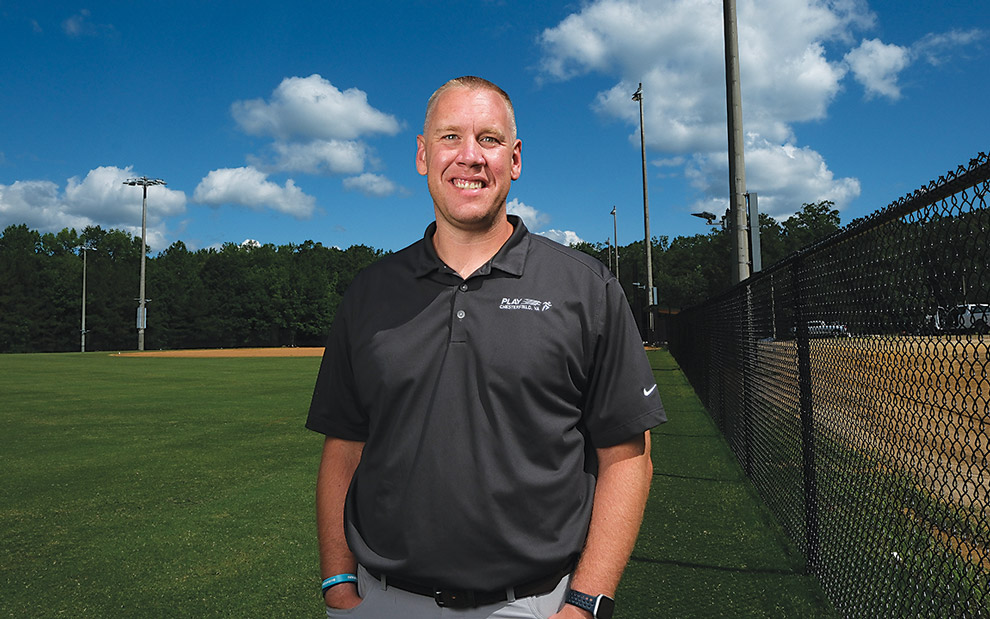
“We want to be a hyper-local storytelling department,” says J.C. Poma, executive director of Chesterfield’s sports, visitation, and entertainment division, which was established in May 2023. “It’s not my job to go out on the national stage to market [the county] for national tourism. We have to give RRT the tools to amplify everything Chesterfield is. I think that’s similar for every locality.”
Poma, who worked with O’Donnell for seven years at RRT before taking the Chesterfield position, points to the River City Sportsplex on Genito Road as an example of the county’s commitment to tourism in general and sports tourism in particular. Built in 2010 by a private developer, the rectangular field complex – suitable for soccer, lacrosse, and field hockey games – was purchased by the county in 2016 for $5.5 million and is being expanded to sixteen fields with a small stadium facility for hosting championship matches. The complex will also gain a playground and splash pad.
“In 2016, to build that site at the time, it would have cost $28 million,” Poma says. “It was bought with the lodgings tax and various issuances of debt, which are completely funded by the impact of tourism. Two-thirds of [the complex’s] usage is for residents, and one-third is events for tourism. I can’t think of another facility that is completely funded by tourism that is still majority-used by residents. Sports tourism is a means to provide better facilities for our residents.”
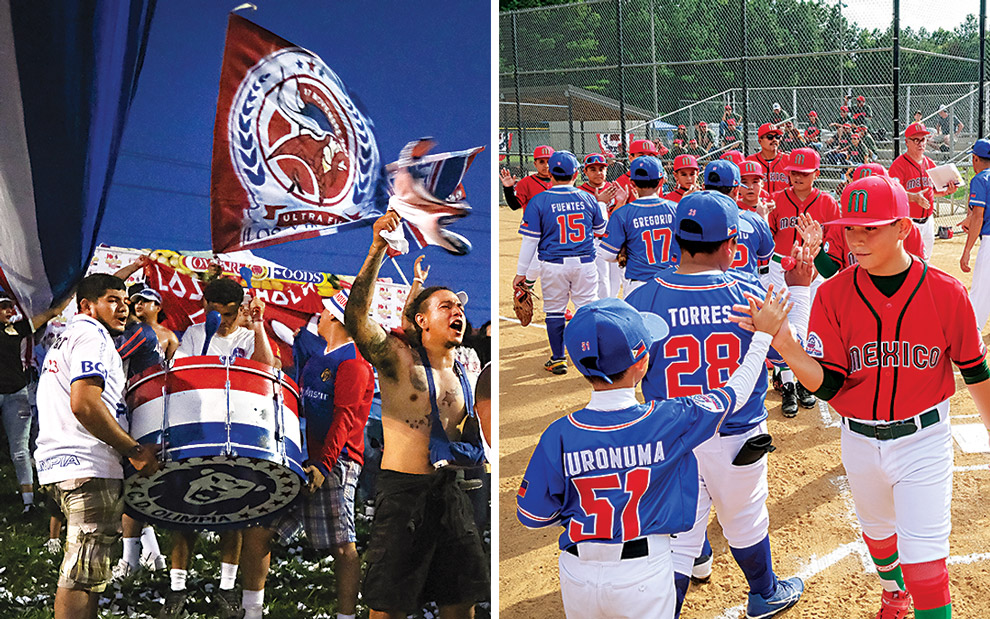
Upgrades are also underway at Harry G. Daniel Park at Ironbridge, where existing softball fields that had been leased to an outside operator are back under county management with new irrigation, drainage, sod, and fencing. Future improvements, Poma says, will ensure Daniel Park can attract events on the same scale as River City Sportsplex.
“It’s about providing a quality visitor experience and being reactive to what people need,” Poma says. “Ten to fifteen years ago, everyone wanted concession stands. But the world has changed; people want better food. So you need a pad with electrical hookups for food trucks. It’s an ongoing investment.”
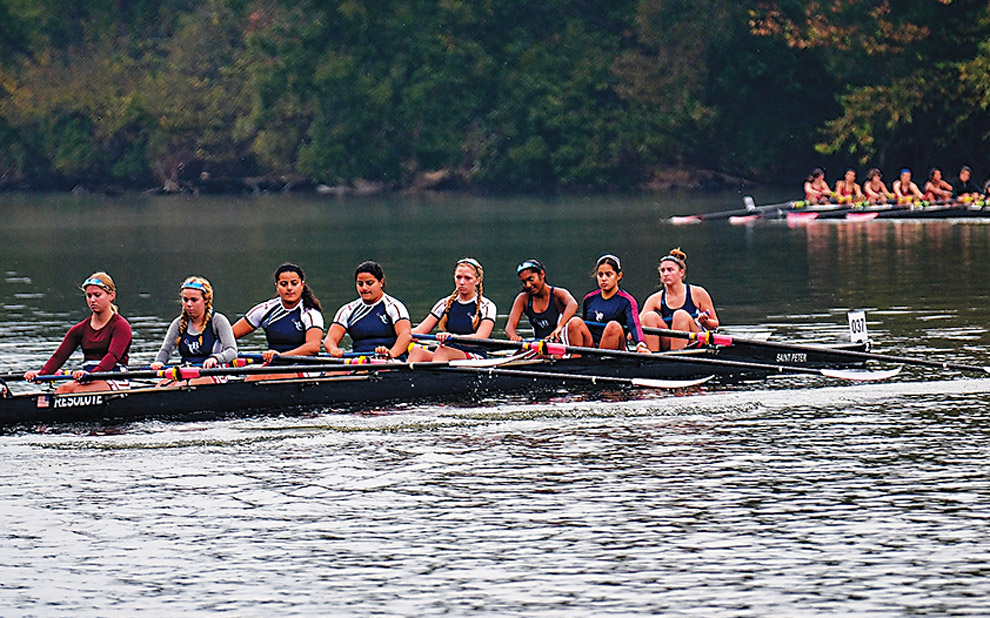
Poma notes that his division works toward making sure visitors and residents alike find it easy to stay and play in Chesterfield. The county currently has roughly 4,300 hotel rooms, with an additional 1,300 rooms expected in eleven planned hotels. This spring, Chesterfield launched its first Restaurant Week, in which thirty-eight participating eateries offered specials. Proceeds benefited the Chesterfield Food Bank Outreach Center. The first-ever Outdoor Fest in April attracted thousands of guests to enjoy some of Chesterfield’s outdoor offerings.
Sharing the Load!
“Whether it’s sports tourism or a resident wanting to experience what Chesterfield County has to offer, the office’s goal is to make sure people know what’s available,” Poma says.
Because Richmond is in the Mid-Atlantic and easily accessible by car, plane, and train, it can be an appealing destination. What helps the region thrive, says Dennis Bickmeier, executive director of the Henrico Sports and Entertainment Authority, is a strategic and collaborative approach.
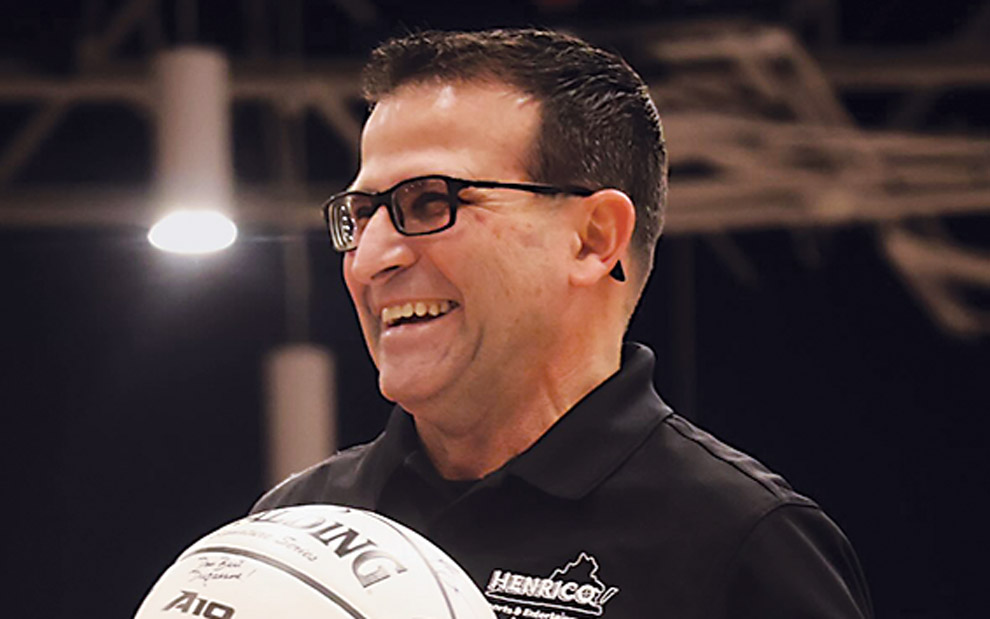
“The biggest thing… is for everyone to understand your niche and your strengths,” he says. “We want events to grow, and you need sports facilities and [nearby] hotel rooms. We look across borders to see if there’s space available for other events. All the pieces and parts need to work together.”
Henrico County’s Henrico Sports & Events Center (HSEC), which opened in November 2023 on the site of the former Virginia Center Commons Mall, adds to the region’s flexibility. The 185,000-square-foot building can accommodate twelve basketball or twenty-four volleyball games, concerts, speakers – even Henrico County’s high school graduations, relocated this year from VCU’s Siegel Center.
“We didn’t build a gym; we built a multipurpose center,” Bickmeier says. “We’ve already hosted the State of the County address, the All Henrico Reads event, and holiday parties. Our goals were to create something that was missing in the sports tourism portfolio and provide space for our community to gather.
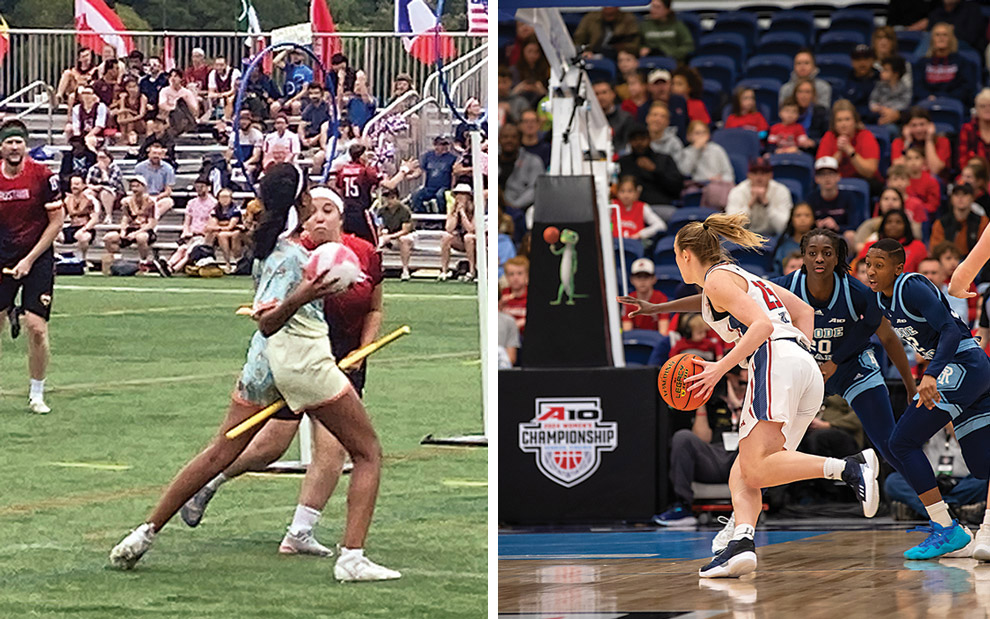
“This really fits a need in our region,” he adds. “We’re blessed with some great facilities from an outdoor perspective – flat fields and diamond sports – but there was a missing piece in having an indoor sports facility. We look at HSEC as a game-changer.”
There’s more on the horizon. A 204-acre swath of land in north-central Henrico will eventually become GreenCity, including office space, parking lots, recreational facilities, and a 17,000-seat arena able to host concerts and large-scale sports events. The project has an estimated price tag of $2.3 billion.
“We laugh internally because we talk about Little Building and Big Building, with Little Building being HSEC,” Bickmeier says. “The GreenCity arena will bring a certain type of high level event that can go into that space. It opens up opportunities for us to build on what we can host.”
HSEC (Little Building) is staying busy, with forty-six weekends booked this year, and one high-profile early customer coming back for more. The Atlantic 10 conference held its women’s basketball tournament at HSEC in March. In late May, A-10 officials announced the championship series would return in 2025.
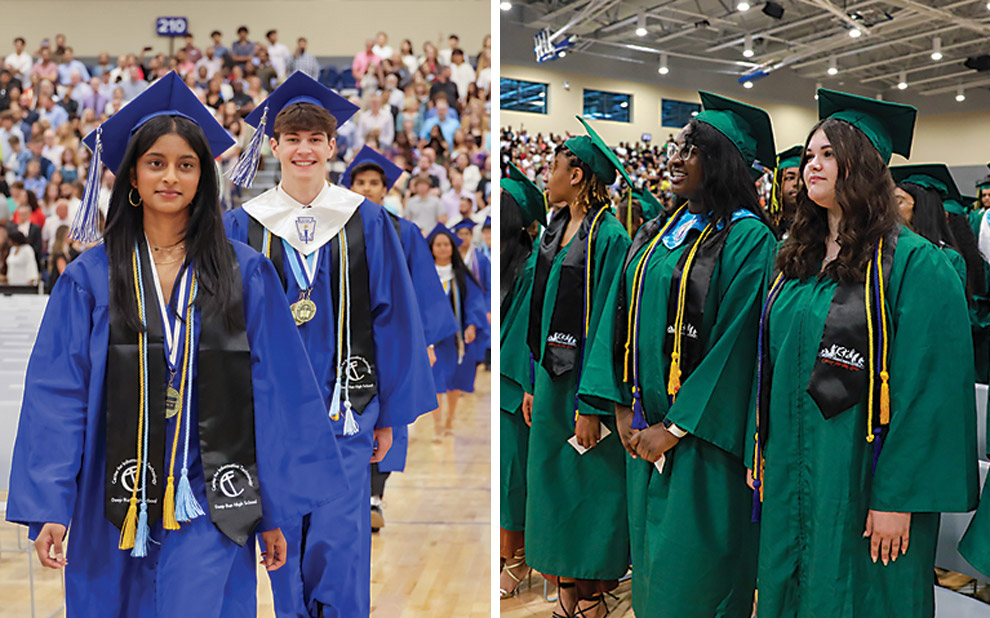
“What can help separate us from other areas that are bidding on
Events
Building Foundations of Caregiving
2026 RFM Summer Camps & Activities Expo
Cinderella Dreams Prom Dress Shopping Event
Cinderella Dreams Prom Dress Shopping Event
Cinderella Dreams Prom Dress Shopping Event
Story Time in the Garden
Virginia Orchid Society Show
Make and Paint Friday – Downtown
Process Art Adventures
Wonder-FULL Wednesdays Toddler Program
And, Bickmeier says, the goal is to entice visitors beyond sports tourism. “We hope [people] spend time exploring other things to see and do in our community,” he says. “We’re blessed with great trail systems and the James River. This is an exciting time in the county and the region overall.”
Tourism for All!
Sportable, the local nonprofit that provides sports opportunities to athletes with physical disabilities and visual impairments, hosted the National Wheelchair Basketball Championships at HSEC in April over two weekends. The first weekend drew fifty-two youth competitors, and the second weekend brought forty-eight adult teams. In total, there were more than 1,200 competitors from thirty-two states and more than 10,000 spectators.
“Hosting the national championships could never have been on our radar without accessing this facility,” says Hunter Leemon, Sportable’s executive director. “Other cities needed two, three, or four locations for the one event, but to do it all under one roof, in one place, allows us to think bigger.”
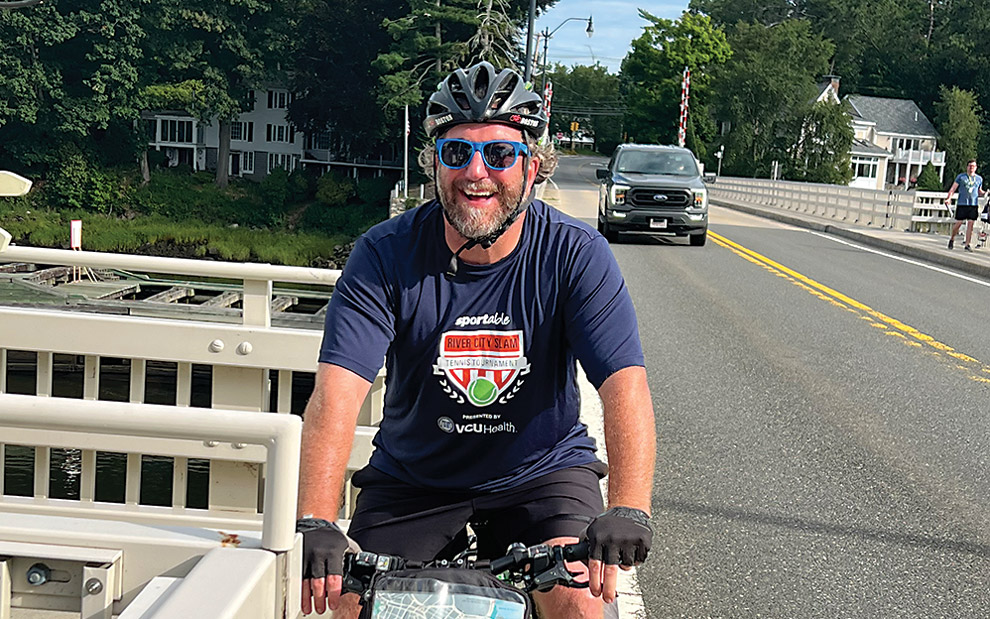
Leemon says the execution of the event was top-notch. “Every player who comes in has two chairs – everyday and sport – and there are logistics of getting in and out [of the facility],” he notes. Food and beverage service was plentiful, and, Leemon says, the staff did a good job of keeping up with the trash generated by the many people in the building.
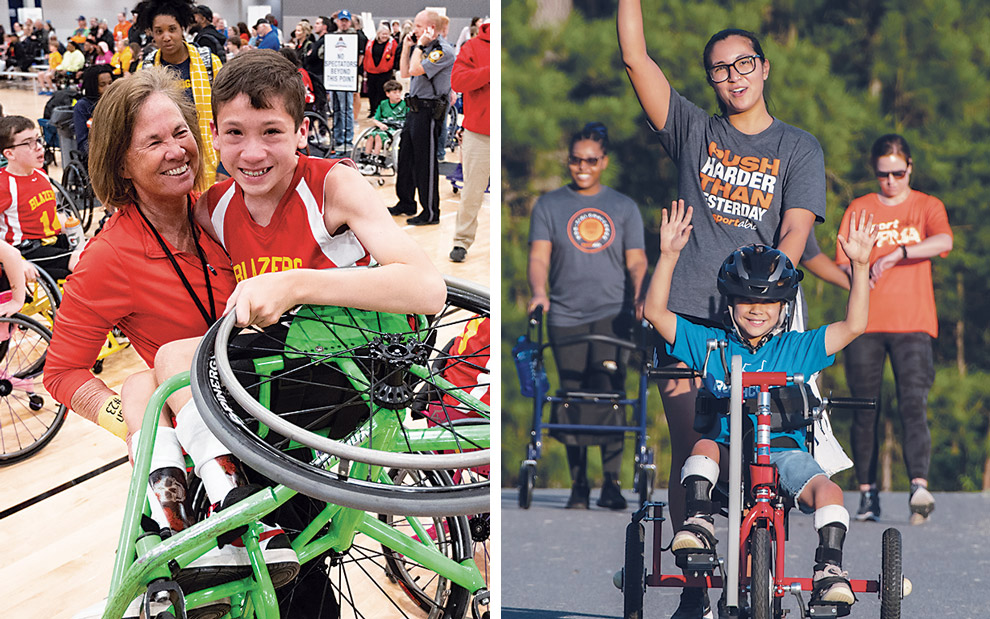
“We’ve been [sending teams] to nationals every year since 2016, and we were proud to host it,” Leemon adds. “With an event of that scale, nothing goes perfectly all the time, but we were really excited with how it turned out. We always felt like events are one of our strengths, and our community would really embrace [the championships].”
Involving the community is essential. Bickmeier agrees with Chesterfield’s Poma that a positive experience has to extend beyond the venue doors. “The hospitality [industry] here has really bought into servicing out-of-town guests with a high level of customer service,” he says. “I give RRT a lot of credit for that, for offering tourism training and tools.”
Even if residents aren’t directly involved in the business of tourism, it matters.
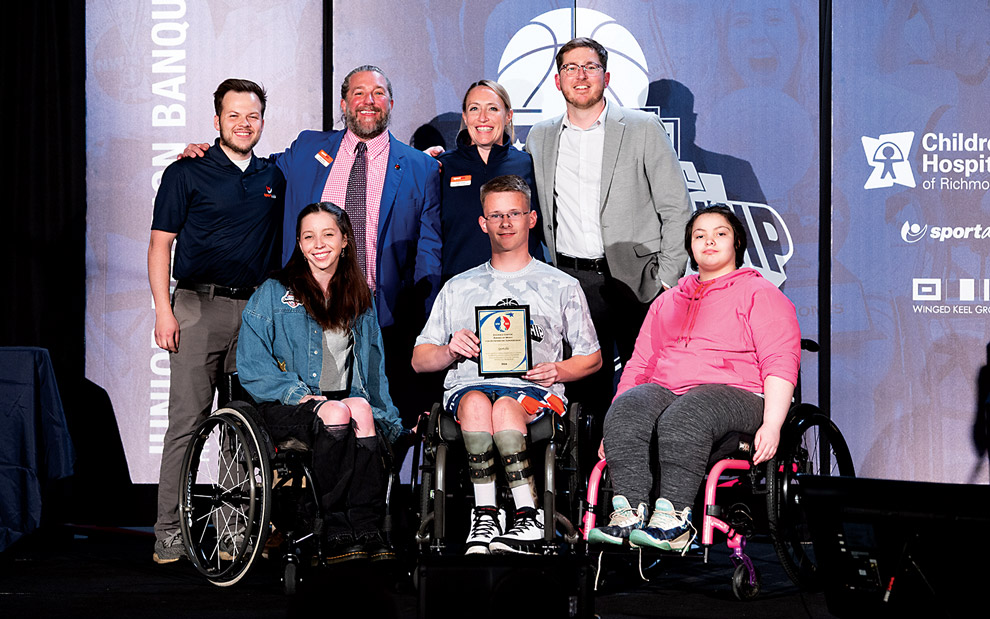
“Tourism supports the things that make the Richmond region so enjoyable,” says RRT’s O’Donnell. “Without visitors, we wouldn’t have these amenities we all love. Tourism is also a generator for people’s livelihoods. It’s an important piece of our work force and our economy.”


